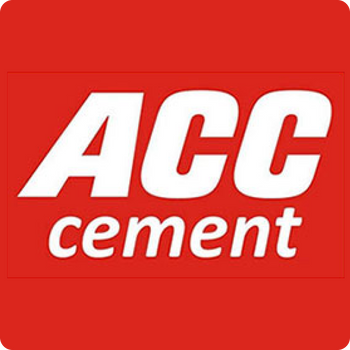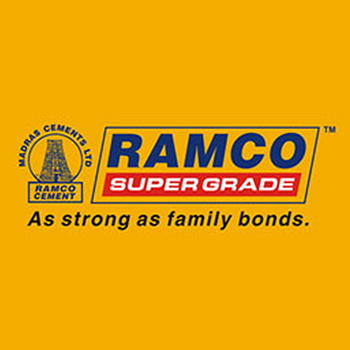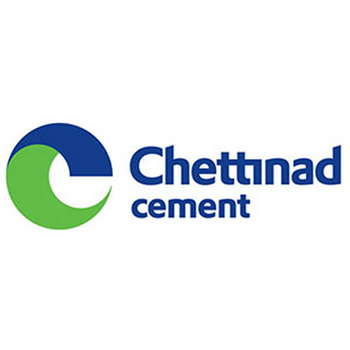Building your dream home or renovating your existing space requires careful planning, especially when it comes to purchasing construction materials. The difference between a successful project and a costly disaster often lies in the quality and appropriateness of the materials you choose.
Poor material choices can lead to structural weaknesses, budget overruns, and dangerous safety issues. A single mistake in selecting cement, steel, or bricks can compromise your entire project's integrity. Construction delays caused by material shortages or defects can extend your timeline by weeks or even months.
Whether you're a homeowner planning a renovation in Chennai or a contractor managing multiple projects, understanding these common pitfalls will help you make smarter purchasing decisions. Here are the seven most critical mistakes people make when buying building materials and proven strategies to avoid them.
Mistake #1: Ignoring Material Quality
Many buyers make the costly error of prioritizing price over quality when selecting construction materials. This approach often backfires spectacularly, especially with foundational elements like cement and steel.
Low-grade cement can develop cracks within months of construction, leading to expensive repairs and potential structural failures. Similarly, substandard steel rods may not provide adequate tensile strength, compromising the entire building's stability during earthquakes or heavy loads.
Solution: Always verify ISI (Indian Standards Institute) certification before making any purchase. Check the grade specifications carefully for example, ensure your cement meets IS 8112 standards for Ordinary Portland Cement. Research your supplier's reputation thoroughly and ask for quality certificates. Reputable construction material suppliers in Chennai will readily provide these documents and stand behind their products with warranties.
Mistake #2: Not Calculating Accurate Quantities
Quantity miscalculations create two equally problematic scenarios: ordering too much wastes money and storage space, while ordering too little causes project delays and increased costs due to multiple delivery charges.
These errors are particularly common with materials like sand, cement, and bricks, where calculations can be complex. A small miscalculation in concrete requirements can leave you scrambling for additional materials mid-project, potentially forcing you to accept whatever quality is immediately available.
Solution: Use proven formulas and online calculators to determine exact quantities needed. For concrete, calculate volume in cubic meters and account for wastage (typically 5-10%). Consult with experienced contractors or engineers for complex calculations. When you buy building materials online in Chennai, many suppliers offer quantity estimation services to help you order precisely what you need.
Mistake #3: Choosing Price Over Value
Focusing exclusively on the lowest price often results in higher long-term costs. Cheap steel may rust quickly in Chennai's humid climate, while poor-quality bricks may crumble or fail to provide adequate insulation.
Adulterated sand mixed with clay or other impurities can weaken concrete significantly, leading to structural problems that emerge months or years later. The cost of replacing inferior materials far exceeds the initial savings from buying cheap alternatives.
Solution: Evaluate the total value proposition, including material quality, supplier reliability, delivery terms, and after-sales support. Compare multiple suppliers not just on price, but on reputation, customer reviews, and quality certifications. A slightly higher upfront investment in quality materials typically saves substantial money over the building's lifetime.
Mistake #4: Not Considering Storage and Handling
Buying materials in bulk without proper storage planning can lead to significant losses. Cement absorbs moisture from the air and becomes unusable within weeks if stored improperly. Steel reinforcement bars can rust when exposed to Chennai's monsoon rains, compromising their structural integrity.
Bricks and tiles can crack or break when stacked incorrectly, while sand can become contaminated with debris or organic matter if left uncovered.
Solution: Purchase materials in phases aligned with your construction schedule. Ensure proper on-site storage facilities before materials arrive—waterproof coverings for cement, elevated platforms for steel, and covered areas for sand and aggregates. If you lack adequate storage space, coordinate with suppliers for staged deliveries to minimize on-site storage time.
Mistake #5: Skipping Supplier Verification
Working with unverified suppliers can lead to numerous problems: delayed deliveries that halt construction progress, counterfeit products that fail quality tests, and poor customer service when issues arise.
Unknown suppliers may not have proper licensing or may operate from temporary locations, making it difficult to seek recourse for defective materials. This risk is particularly high when purchasing online without researching the supplier's background.
Solution: Choose established suppliers with proven track records in Chennai's construction market. Check online reviews, ask for references from previous customers, and verify business licenses. Reliable construction material suppliers in Chennai will have physical locations, proper documentation, and responsive customer service teams to address any concerns promptly.
Mistake #6: Overlooking Transport and Logistics
Poor handling during transportation can damage materials before they reach your construction site. Cement bags may tear, steel bars may bend, and fragile items like tiles can crack during rough handling or inadequate packaging.
Inadequate delivery planning can also create bottlenecks—materials arriving when workers aren't available to unload, or deliveries scheduled during monsoon periods when materials could be damaged by rain.
Solution: Choose suppliers who provide professional delivery services with proper packaging and handling procedures. Confirm delivery schedules that align with your construction timeline and weather conditions. When you buy building materials online in Chennai, verify that the supplier offers insured delivery and proper offloading support to prevent damage during the final stages of transport.
Mistake #7: Ignoring Local Standards and Requirements
Different regions have specific building codes and material requirements based on local climate, soil conditions, and seismic activity. Materials suitable for dry climates may not perform well in Chennai's humid, coastal environment.
Using materials that don't meet local standards can result in construction delays, failed inspections, and potentially dangerous structural inadequacies. Some local authorities may require specific certifications or grades that aren't standard elsewhere.
Solution: Research Chennai's specific building codes and material requirements before making purchases. Consult with local architects or engineers who understand regional specifications. Ensure all materials meet Bureau of Indian Standards (BIS) requirements and any additional local regulations that may apply to your project.
Building Smart: Your Next Steps
Avoiding these seven critical mistakes can save you thousands of rupees, prevent dangerous structural issues, and ensure your construction project stays on schedule. The key lies in prioritizing quality over price, planning quantities carefully, and working with reputable suppliers who understand Chennai's unique construction requirements.
Remember that the cheapest option rarely proves most economical in the long run. Invest time in research, verification, and proper planning before making material purchases. Your building's safety, durability, and your peace of mind depend on these early decisions.
Ready to source quality materials for your project? Choose trusted construction material suppliers in Chennai who offer verified products, accurate quantity estimation, and reliable delivery services. Make your next material purchase a foundation for success, not a source of costly problems.











